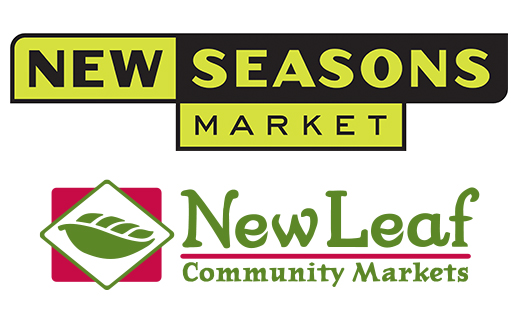

New Seasons Market

Oregon, United States
March 2013
Food products
Wholesale/Retail
United States
New Seasons Market is a neighborhood grocery store that believe great-tasting, local food has the power to build community and enhance lives. As the world’s first B Corp grocer, the company is committed to growing a sustainable business by caring for its staff, partners, neighborhoods and the environment while cultivating a strong community centered around food. Founded in 2000 by three families and 50 friends in Portland, Ore., New Seasons Market is now a team of nearly 2,700 passionate staff across 22 stores in Oregon and SW Washington, serving a unique mix of regenerative, locally sourced and organic items, as well as classic grocery favorites and chef-made grab-and-go meal solutions. A portion of proceeds from New Seasons Market’s Partner Brand directly supports farmers and ranchers who implement farm practices that sequester carbon. Recognized in 2024 as one of Oregon’s Most Admired Companies by the Portland Business Journal, a Progressive Grocer Impact Award recipient and one of the EPA’s Top 30 Green Power Retail Partners, New Seasons Market is proud of its values—offering industry-leading compensation and benefits to committing 10 percent of its after-tax profits to the communities it serves. For more information, visit www.newseasonsmarket.com.
Overall B Impact Score
Governance 12.1
Governance evaluates a company's overall mission, engagement around its social/environmental impact, ethics, and transparency. This section also evaluates the ability of a company to protect their mission and formally consider stakeholders in decision making through their corporate structure (e.g. benefit corporation) or corporate governing documents.
What is this? A company with an Impact Business Model is intentionally designed to create a specific positive outcome for one of its stakeholders - such as workers, community, environment, or customers.
Workers 18.6
Workers evaluates a company’s contributions to its employees’ financial security, health & safety, wellness, career development, and engagement & satisfaction. In addition, this section recognizes business models designed to benefit workers, such as companies that are at least 40% owned by non-executive employees and those that have workforce development programs to support individuals with barriers to employment.
Community 21.8
Community evaluates a company’s engagement with and impact on the communities in which it operates, hires from, and sources from. Topics include diversity, equity & inclusion, economic impact, civic engagement, charitable giving, and supply chain management. In addition, this section recognizes business models that are designed to address specific community-oriented problems, such as poverty alleviation through fair trade sourcing or distribution via microenterprises, producer cooperative models, locally focused economic development, and formal charitable giving commitments.
What is this? A company with an Impact Business Model is intentionally designed to create a specific positive outcome for one of its stakeholders - such as workers, community, environment, or customers.
Environment 27.1
Environment evaluates a company’s overall environmental management practices as well as its impact on the air, climate, water, land, and biodiversity. This includes the direct impact of a company’s operations and, when applicable its supply chain and distribution channels. This section also recognizes companies with environmentally innovative production processes and those that sell products or services that have a positive environmental impact. Some examples might include products and services that create renewable energy, reduce consumption or waste, conserve land or wildlife, provide less toxic alternatives to the market, or educate people about environmental problems.
What is this? A company with an Impact Business Model is intentionally designed to create a specific positive outcome for one of its stakeholders - such as workers, community, environment, or customers.
Customers 2.0
Customers evaluates a company’s stewardship of its customers through the quality of its products and services, ethical marketing, data privacy and security, and feedback channels. In addition, this section recognizes products or services that are designed to address a particular social problem for or through its customers, such as health or educational products, arts & media products, serving underserved customers/clients, and services that improve the social impact of other businesses or organizations.